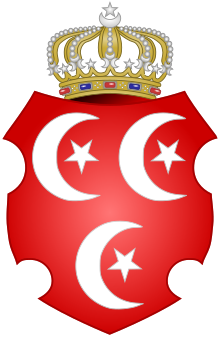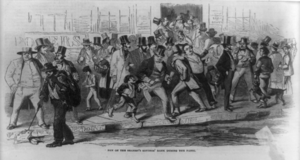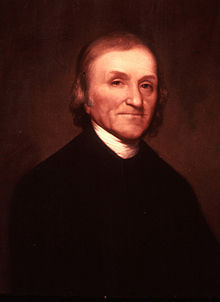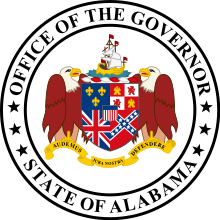Portal:Politics
| Main | Topics and categories | Tasks and projects |
The Politics portal
Politics (from Ancient Greek πολιτικά (politiká) 'affairs of the cities') is the set of activities that are associated with making decisions in groups, or other forms of power relations among individuals, such as the distribution of resources or status. The branch of social science that studies politics and government is referred to as political science.
It may be used positively in the context of a "political solution" which is compromising and non-violent, or descriptively as "the art or science of government", but also often carries a negative connotation. The concept has been defined in various ways, and different approaches have fundamentally differing views on whether it should be used extensively or in a limited way, empirically or normatively, and on whether conflict or co-operation is more essential to it.
A variety of methods are deployed in politics, which include promoting one's own political views among people, negotiation with other political subjects, making laws, and exercising internal and external force, including warfare against adversaries. Politics is exercised on a wide range of social levels, from clans and tribes of traditional societies, through modern local governments, companies and institutions up to sovereign states, to the international level.
In modern nation states, people often form political parties to represent their ideas. Members of a party often agree to take the same position on many issues and agree to support the same changes to law and the same leaders. An election is usually a competition between different parties.
A political system is a framework which defines acceptable political methods within a society. The history of political thought can be traced back to early antiquity, with seminal works such as Plato's Republic, Aristotle's Politics, Confucius's political manuscripts and Chanakya's Arthashastra. (Full article...)
Selected article
The Political Cesspool is a weekly talk radio show founded by James Edwards, and syndicated by Liberty News Radio Network and Accent Radio Network. First broadcast in October 2004 twice a week from radio station WMQM, it is broadcast on Saturday nights on WLRM, a Christian radio station in Millington, Tennessee. Its sponsors include the white separatist Council of Conservative Citizens and the Institute for Historical Review, a Holocaust denial group. According to its statement of principles, the show stands for the "Dispossessed Majority" and represents "a philosophy that is pro-White." It has attracted criticism from multiple organizations for its promotion of anti-semitic, white nationalist and white supremacist views. The show features Edwards and his co-hosts Bill Rolen, Winston Smith, Keith Alexander, and Eddie Miller, as well as producer Art Frith. Its guests have included author Jerome Corsi, Minuteman Project leader Jim Gilchrist, former Constitution Party presidential candidate Michael Peroutka, actor Sonny Landham, British National Party leader Nick Griffin, Vermont secessionist Thomas Naylor, and paleoconservative activist Pat Buchanan.
Featured picture

George John Douglas Campbell, 8th Duke of Argyll KG, KT, PC, FRS, FRSE (30 April 1823 – 24 April 1900), styled Marquess of Lorne until 1847, was a Scottish peer, Liberal politician as well as a writer on science, religion, and the politics of the 19th century.
The governor of Alabama is the head of government of the U.S. state of Alabama. The governor is the head of the executive branch of Alabama's state government and is charged with enforcing state laws.
There have officially been 54 governors of the state of Alabama; this official numbering skips acting and military governors. The first governor, William Wyatt Bibb, served as the only governor of the Alabama Territory. Five people have served as acting governor, bringing the total number of people serving as governor to 59, spread over 63 distinct terms. Four governors have served multiple non-consecutive terms: Bibb Graves, Jim Folsom, and Fob James each served two, and George Wallace served three non-consecutive periods. Officially, these non-consecutive terms are numbered only with the number of their first term. William D. Jelks also served non-consecutive terms, but his first term was in an acting capacity. (Full article...)

List of all the members of the Storting in the period 2005 to 2009. The list includes all those initially elected to the Storting. Between 19 October 2005 and 30 September 2009, the Parliament of Norway consisted of 169 members from 7 parties and 19 constituencies, elected during the 2005 Norwegian parliamentary election on 11 and 12 September. The Red-Green Coalition, consisting of the Labour Party (61 members), the Socialist Left Party (15 members) and the Centre Party (11 members) gained a majority and created Stoltenberg's Second Cabinet. The majority cabinet lasted the entire session and was reelected in the 2009 election. The opposition consisted of four parties: the Progress Party (38 members), the Conservative Party (23 members), the Christian Democratic Party (11 members) and the Liberal Party (10 members).
Members of the Parliament of Norway are elected based on party-list proportional representation in plural member constituencies. This means that representatives from different political parties are elected from 19 constituencies, which are identical to the 19 counties. The electorate does not vote for individuals but rather for party lists, with a ranked list of candidates nominated by the party. This means that the person on top of the list will get the seat unless the voter alters the ballot. Parties may nominate candidates from outside their own constituency, and even Norwegian citizens currently living abroad. (Full article...)
Selected quote
Selected biography
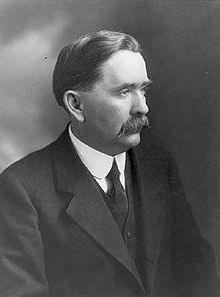
John Robert Boyle KC (February 3, 1871 – February 15, 1936) was a Canadian politician and jurist who served as a Member of the Legislative Assembly of Alberta, a cabinet minister in the Government of Alberta, and a judge on the Supreme Court of Alberta. Born in Ontario, he came west and eventually settled in Edmonton, where he practiced law. After a brief stint on Edmonton's first city council, he was elected in Alberta's inaugural provincial election as a Liberal. During the Alberta and Great Waterways Railway scandal, he was a leader of the Liberal insurgency that forced Premier Alexander Cameron Rutherford from office.
Did you know (auto-generated) -

- ... that before becoming the mayor of Medan, Indonesia, Agus Salim Rangkuti acted in movies and oversaw a real-life political prison camp?
- ... that the photograph Kandake of the Sudanese Revolution symbolised the determination of the Sudanese people as they called for political change?
- ... that although he was a former Indonesian prime minister, Soekiman Wirjosandjojo was not arrested during a political purge as he was considered a non-threat?
- ... that Valentina Bodrug-Lungu has declared that Moldova's political climate does not encourage female participation, despite having a woman president?
- ... that even though the Legislative Assembly of Quebec ordered a monument of Maurice Duplessis in front of its building, later premiers hid it for 16 years to avoid political tensions?
- ... that Colin Mackay, the political editor at Scottish Television, was "very sad" when Colin MacKay, the political editor at Scottish Television, died?
More did you know...
- ...that the Communist League of America was formed after some members of the Communist Party USA were expelled for Trotskyism?
- ...that Matt Taibbi's book Griftopia has been described as a "necessary ... corrective" to the assertion that bubbles are an inevitable part of the market economy?
- ...that in the book Net.wars, author Wendy M. Grossman attributes Internet conflict in the 1990s to culture shock from an influx of users?
- ...that former California Assembly Republican Leader and California Republican Party Chair Robert W. Naylor was editor of The Stanford Daily while he was a student at Stanford University?
- ...that the New Zealand McGillicuddy Serious Party wanted to return to a medieval lifestyle and establish a monarchy based on the Scottish Jacobite line?
- ...that in April 2009, Lim Hwee Hua became the first woman to be appointed a full Minister in Singapore's Cabinet?
In this month
- July 20, 1944 – an assassination attempt is made on Adolf Hitler with involvement by notable German conservatives.
- July 23, 1952 – The European Coal and Steel Community is established.
- July 27, 1830 – King Charles X of France is overthrown in the French Revolution of 1830, also known as the July Revolution.
- July 31, 1912 – American conservative economist, statistician, and Nobel Prize winner Milton Friedman is born.
News and Current events
- August 11: 4 local government areas in New South Wales, Australia locked down after COVID-19 case
- August 11: Australia: AstraZeneca vaccine access expanded by Victorian government
- August 1: Australia: Victorian lockdown lifted
- July 29: Tunisia's president dismisses prime minister, suspends parliament
- July 25: Australia: Wikinews interviews Reg Kidd, mayor of the City of Orange, about COVID-19 lockdown and local government
- July 23: South Australia enters week-long lockdown to contain COVID-19 Delta variant spread
- July 21: Technological University Dublin senior lecturer Dr Lorcan Sirr speaks to Wikinews on housing market in Ireland
- July 21: Three rural councils in New South Wales, Australia enter 7-day lockdown
- July 21: Australia: Victoria lockdown extended by a week with 85 active cases recorded
- July 15: California governor signs new state budget, eligible Californians to get stimulus payments
Topics and categories
General images
Related portals
Associated Wikimedia
The following Wikimedia Foundation sister projects provide more on this subject:
-
Commons
Free media repository -
Wikibooks
Free textbooks and manuals -
Wikidata
Free knowledge base -
Wikinews
Free-content news -
Wikiquote
Collection of quotations -
Wikisource
Free-content library -
Wikiversity
Free learning tools -
Wiktionary
Dictionary and thesaurus

![Image 1 The prime minister of Pakistan (Urdu: وزير اعظم, romanized: Wazīr ē Aʿẓam, lit. 'Grand Vizier', Urdu pronunciation: [ʋəˈziːɾˌeː ˈɑː.zəm]) is the popularly elected politician who is the chief executive of the Government of Pakistan. The prime minister is vested with the responsibility of running the administration through his appointed federal cabinet, formulating national policies to ensure the safeguard of the interests of the nation and its people through the Council of Common Interests as well as making the decision to call nationwide general elections for the bicameral Parliament of Pakistan. Since 1947, Pakistan has had 20 prime ministers, aside from the appointed caretaker prime ministers who were only mandated to oversee the system until the election process was finished. In Pakistan's parliamentary system, the prime minister is sworn in by the president and usually is the chairman or the president of the party or coalition that has a majority in the National Assembly– the lower house of Pakistan Parliament. (Full article...)](http://upload.wikimedia.org/wikipedia/en/d/d2/Blank.png)




